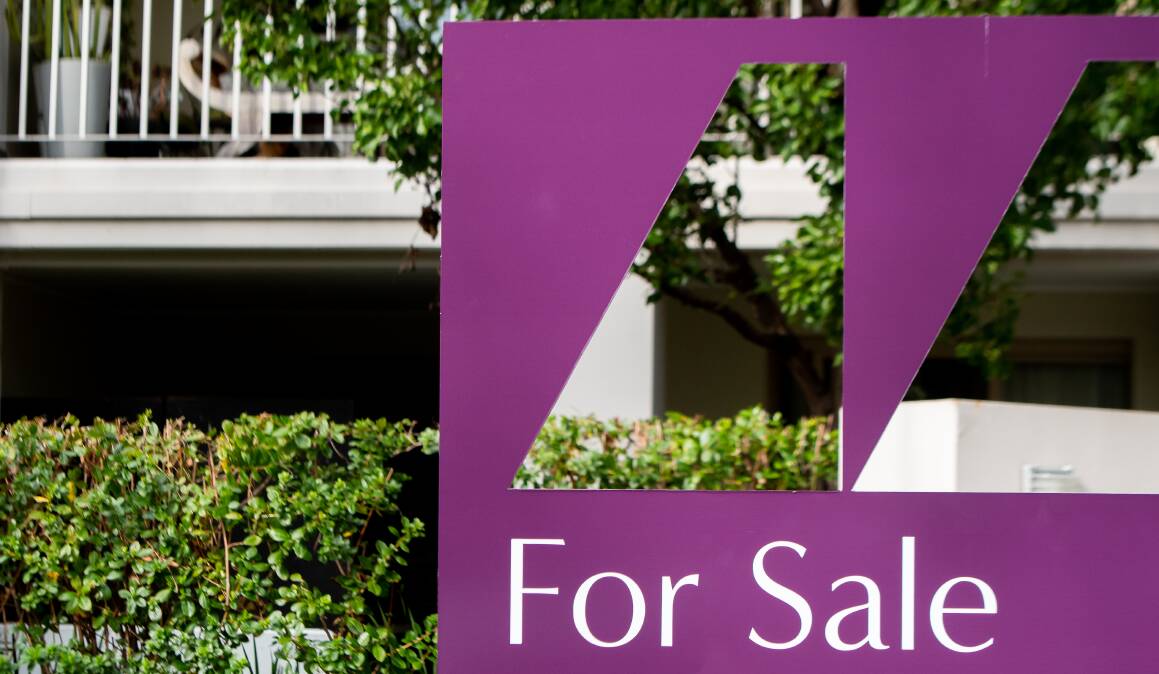Canberra home owners are having to fork out the same percentage of their income to pay off their mortgage as they were in late 1990 - when the cash rate was a whopping 14 per cent.
But housing experts remain optimistic a mass of distressed home sales is unlikely.
David Bassanese, chief economist at fund management firm Betashares, said mortgage affordability was as bad now as it was more than three decades ago.
His modelling, based on data from the Australian Bureau of Statistics and CoreLogic, shows a Canberra household on average earnings was spending 44 per cent of their after-tax income on loan repayments for a median-priced home during the March quarter.
The last time the income ratio was above 44 per cent was in September 1990 when the official cash rate was 14 per cent and interest rates 16 per cent.
Despite today's cash rate sitting at 3.85 per cent, a number of factors have led to a rapid deterioration in loan affordability.
Mr Bassanese said while house prices had fallen in the past year, that had been offset by rising interest rates.
"So mortgage affordability has actually gotten worse over the past year," he said.
Wage growth had also lagged behind the rise of property values. In Canberra, home values soared 38.3 per cent between the onset of the pandemic and the market peak in June 2022, CoreLogic data shows.
Another two rate rises, coupled with stabilising home values, could push mortgage unaffordability deeper, Mr Bassanese said.
"Another 50 basis point increase by the RBA that flows through to mortgage rates may well see mortgage unaffordability hit record highs and become even worse than it was in 1990," he said.
Experts divided on the Reserve Bank's next move
Home owners are bracing for the June cash rate decision, while economists and experts are divided on what Tuesday's announcement will hold.
Of the 39 experts surveyed by comparison website Finder, a slim majority (56 per cent) predicted the Reserve Bank will hold the cash rate at 3.85 per cent in June.
Of the 44 per cent who forecast an increase, the majority are expecting a 25 basis point increase, taking the cash rate to 4.1 per cent.
Beyond June, 67 per cent of the experts forecast the cash rate would then hold in July.
Mr Bassanese's predicted another rate rise was likely, but possibly not as early as this month.
"I think there's been some evidence of slowing in retail spending, building approvals are coming off. So we're seeing more evidence of the economy slowing," he said.
The monthly consumer price index jumped to a higher than expected annual rate of 6.8 per cent in April, however this was heavily influenced by last year's fuel excise cut.
For this reason, Ray White chief economist Nerida Conisbee said it was likely the Reserve Bank would hold the cash rate this month.
"If you take out the highly volatile area the inflation rate did decline slightly," she said.
"So I think at this point they'll probably hold, but [there are] no guarantees we won't see another increase at some point."
Is mortgage affordability likely to get worse?
With an estimated 800,000 fixed rate loans due to expire in 2023, the so-called fixed rate cliff is expected to add to mortgage stress levels.
Following the release of May home value data, CoreLogic research director Tim Lawless said the number of fixed rate home loans rolling off would rise sharply in the coming months.
"As more borrowers refinance we should get a better understanding of how well borrowers are placed to service their debt at a substantially higher interest rate," he said.
But he said tight labour market conditions and healthy household savings would provide a buffer against high levels of distressed selling.
"It would be naive to think mortgage arrears won't rise through the second half of the year, however, a material lift in motivated sellers seems unlikely," Mr Lawless said.
Ms Conisbee said while household budgets were undoubtedly stretched, there were still no signs of mass forced selling.
"When we have a look at the worst case of mortgage stress, which is a mortgagee sale, there's about 300 of them listed nationally," she said.
"It's risen a lot but it's not like we're seeing this mass sell-off of property as a result of higher interest rates."
Mr Bassanese said the main concern was less about forced sales and more about those trying to enter the market.
"First home buyers trying to buy a property now, it's just really, really hard and that's assuming you can get a deposit," he said.
"[Houses] used to be three times after tax income in Canberra in 1990. Now it's close to six times the income."
We've made it a whole lot easier for you to have your say. Our new comment platform requires only one log-in to access articles and to join the discussion on The Canberra Times website. Find out how to register so you can enjoy civil, friendly and engaging discussions. See our moderation policy here.








